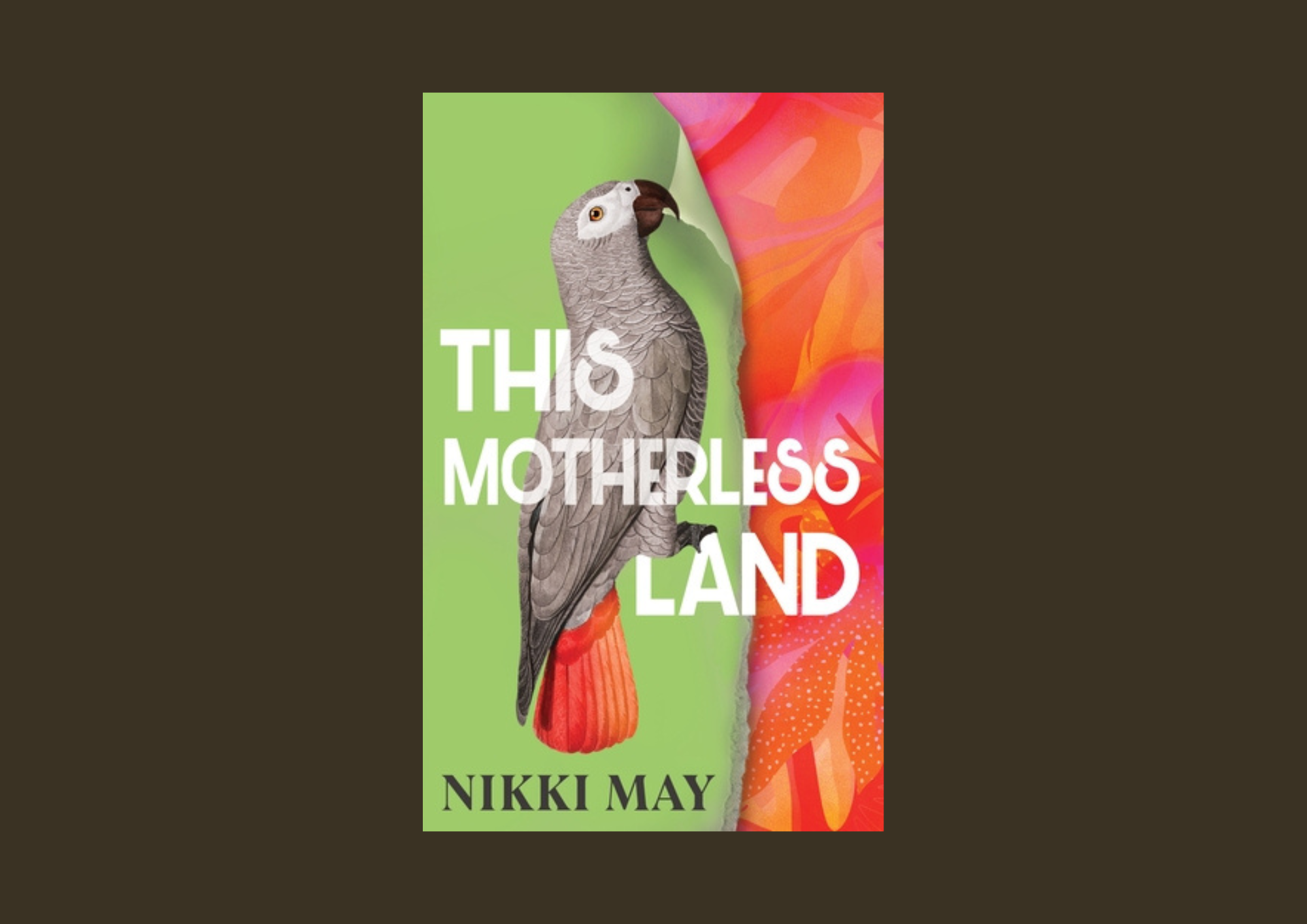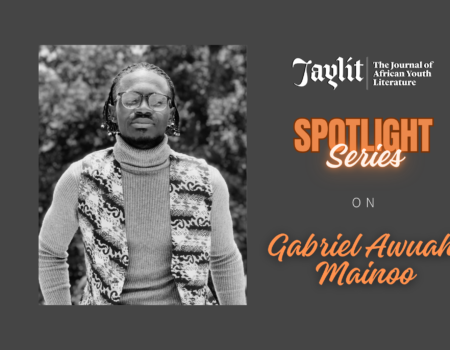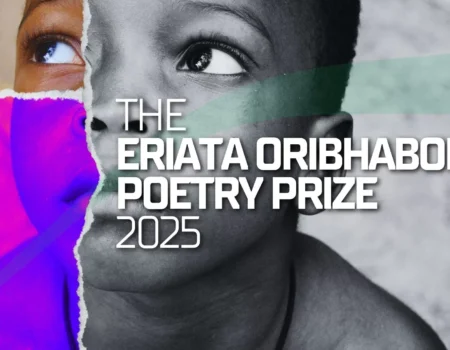It’s sun down. I’m lying on the cold floor in my bedroom, and I’ve finally closed the cover on Nikki May’s heart-wrenching second novel This Motherless Land. I feel a mix of emotions and mutter to myself… “finally!”. Where do I begin?
I started this journey with zero expectations, hoping to get lost in another world for a while. Little did I know, This Motherless Land would crack open my own internal wounds. This isn’t a book you rush through in days. It’s a slow dance with your emotions. You painstakingly savour it, pause and breath in between and forge ahead again. It will wring you emotionally, bring your blood to a boil, and calm your storms—all at the same time.
So What’s the Book About?
On the surface, the book takes you into the world of Funke, a ten-year-old daughter of an English mother and a Nigerian father whose comfortable world is torn apart when her mother and younger brother die in the very same car accident that she survives unscathed. Her paternal grandmother brands her an “àjẹ́ pupa”—a red witch—and she’s sent away to England to live with her mother’s relatives.
As you dive deeper, you’ll discover a complex weave of grief, prejudice, identity crisis and toxic family dynamics. Bringing together decades and continents, Funke’s story will transport you to a world of pain, resilience, and hope. The cruelty of her father and paternal grandmother; her struggles to navigate a cold, racist, and unforgiving environment in England; the narcissism of her aunt Margot; the emotional distance of her grandparents, and the bleakness of her new home, “The Ring”, will leave your heart in pieces.
Amidst the darkness, however, there’s a glimmer of hope. Funke’s cousin, Liv, is an embodiment of kindness, compassion, and freedom. As their bond grows, you’ll find yourself rooting for these two girls to overcome the generational wrongs that haunt them.
Nikki May’s writing is gripping, poignant, and all-encompassing. She opens doors to uncomfortable truths, sheds light on the complexities of human relationships and reminds us that our identities are shaped by our experiences, cultures, and choices.
What I love about the Book
Length: The book is 340 pages long. I consider the length perfect, and I admire how the author weaves a complex range of themes into a concise read.
Subtlety at its Finest: The author approached hard-hitting issues with a delicate touch, velvet-gloving harsh realities just enough to make them palatable, but not so much that they lose their impact. I was struck by the subtle hints of sexism in the opening pages, which spoke volumes about Funke’s father, Babatunde. The way he encouraged Funke to downplay her intelligence, allowing her brother’s superiority to shine through. “You always jump in,” Babatunde chides Funke, “Give your brother a chance”. It was there when he eventually gave his two children a naira each; Funke for winning the quiz and Femi for being a boy. The preference Babatunde has for Femi is not subtle at all. But misogyny leaves you shocked every time it delivers a new blow. And shocked was the exact way I felt when after the death of Lizzie and Femi, Babatunde resented Funke for surviving the accident and even wished her dead. As someone who gets triggered by misogyny, this was a hard read for me.
Relatability: The characters’ struggles resonated deeply with me, opening up a torrent of emotions – anger, sadness, compassion, and excitement. I saw myself in Funke and Liv’s journeys, as if the author had somehow tapped into my own experiences. The dual POV added depth, seamlessly switching between the two girls’ perspectives. This book has left an indelible mark on my heart. And I think that in a way, it has made me more aware of my own struggles.
The Questions We Need to Ask: The book confronts us with uncomfortable truths—sexism, racism, toxic family dynamics, narcissism, and mental health. Yet, the author balances these heavy themes with humor, making the read more bearable.
Balanced: The book’s well-rounded portrayal of Nigeria and England, avoiding stereotypes and romanticization, was a refreshing change. The author is fair in her portrayal of the positives and negatives of both countries. She doesn’t sugar-coat or romanticize any detail. She says it as it is, poking fun when needed. I especially loved this detail about the book.
What Didn’t Quite Click for Me
A Simplistic Plot: As I closed the book, I couldn’t shake off the feeling that some threads were left dangling. It was like the author had expertly woven a masterpiece, but then forgot to tie the final knots.
For instance, Ishir’s eyewitness account of what happened on the night of the fateful car accident felt like a loose end. Why introduce this pivotal detail if it wouldn’t impact the story? I also expected more tension and drama when Funke returned to Nigeria, especially given Babatunde’s callous treatment of her. But instead, Funke seemed to sweep her emotions under the rug, and life went on as usual. It felt too simplistic and too bland.
And what about therapy? Given the trauma these girls endured, I expected to see them grappling with their emotions in a more meaningful way. But it never happened. The reconciliation between Funke and Liv felt rushed and unrealistic. Years of pain and betrayal can’t be resolved in a few hours. It was like the author glossed over the complexity of their relationship. The story felt like a Hollywood movie—cliched and unrealistic.
Weak Characters: I also didn’t like that Kate’s grandparents lacked personality and depth. They felt like cardboard cutouts, allowing Margot’s narcissistic tendencies to run unchecked. Why didn’t anyone challenge her when she decided that Kate wasn’t going to go to Wooders? Why did they make her believe that she was going to inherit everything? How come the grandma never asked questions about everything leading up to Kate’s deportation? Why did they all have to tiptoe around her? This was so infuriating to see.
Trigger Warnings
Childhood Trauma
Narcissistic Abuse
Misogyny and Racism
Favourite Quotes from the Book
“Meanwhile, Dominic the Mumu was treated like a prince. It was almost a relief to realise some things—like boys being more important than girls—were the same in Nigeria and England.”
“But it was people who made houses homes. Maybe that’s what mum meant by ‘safe as houses’.”
“Losing her virginity had been top of her list of things to do. She’d imagined fireworks and multiple orgasms with a strong brooding man with chiselled cheekbones, eyes that saw into her soul and a sensual mouth. In reality, sex was as unsatisfactory as her job”
“She’d searched that motherless land in vain, looked for mum all over The Ring, tried to find her by the lightning tree, sought her out at the folly. But She’d been in Lagos all along. In Billy’s Squawk. In this waiter’s voice… All this time, she’d been searching for her mother in the wrong land. This was where Mum was, in the heart of all the people she’d touched.”
“Why had she been so ready to believe she would lose? She was her own worst enemy; her biggest oppressor was in the mirror”
My Rating: 4/5
It was a beautiful read, an emotional rollercoaster; one that will make you confront uncomfortable truths about the complexities of being human.
Wardah Abbas
Wardah Abbas is a lawyer, writer and women's rights advocate. She has been published in various magazines, journals, media platforms and anthologies. Her writings focus mainly on gender, culture, Islam and the complexities of being human. She is the founding editor of The Muslim Women Times - A media platform and community centring the diverse perspectives of Muslim Women.



![[Featured Post] Remembering OkadaBooks–One Year Later](https://jaylit.com/wp-content/uploads/2024/11/JAY-Lit-News-Blog-Banner-2-450x350.png)

